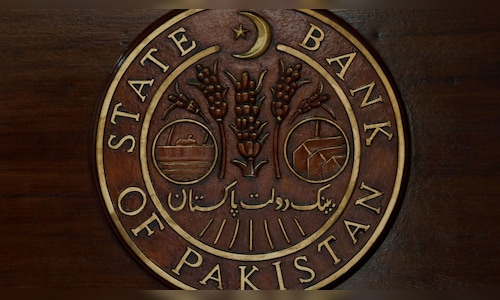IMF Demands Pakistan Shake-Up: Finance Secretary Removal & Key Deputy Governor Appointments

In a move signaling heightened scrutiny and demanding swift action, the International Monetary Fund (IMF) has issued a firm directive to Pakistan regarding key personnel changes within the State Bank of Pakistan (SBP). The global lender is insisting on the immediate removal of the finance secretary from the SBP's board of directors, alongside the urgent filling of two vacant deputy governor positions.
This demand underscores the IMF's commitment to ensuring the SBP's independence and strengthening its governance structure, crucial elements for Pakistan's ongoing economic reform program. The finance secretary's presence on the board has been viewed by some as potentially compromising the SBP's autonomy, particularly when making decisions related to monetary policy and inflation control.
Why the Focus on the Finance Secretary? The IMF’s insistence on removing the finance secretary highlights concerns about potential government interference in the SBP's operations. Maintaining the central bank's independence is considered vital for credible monetary policy and managing inflation expectations. The finance secretary's role inherently involves representing the government's fiscal interests, which can create a conflict of interest when influencing the SBP's decisions.
Addressing the Deputy Governor Vacancies: A Critical Need The two vacant deputy governor positions are equally critical. These roles are essential for the SBP’s day-to-day operations and for providing expert input on monetary policy decisions. The prolonged vacancies have hampered the bank’s ability to effectively manage the economy and respond to emerging challenges. The IMF’s call for immediate appointments aims to bolster the SBP's capacity and ensure a robust leadership team.
Impact on Pakistan's Economic Program These demands come as Pakistan navigates a challenging economic landscape, relying heavily on the IMF's financial assistance. Compliance with the IMF's stipulations is a prerequisite for continued disbursements under the existing loan program. Failure to meet these conditions could jeopardize Pakistan’s access to vital funding, further destabilizing its economy.
What's Next for Pakistan? The Pakistani government now faces the task of swiftly implementing these changes. The removal of the finance secretary and the appointment of new deputy governors will require careful consideration and a commitment to upholding the SBP’s independence. The government's response will be closely watched by the IMF and international investors, serving as a key indicator of Pakistan's commitment to economic reform.
The situation underscores the ongoing challenges Pakistan faces in balancing the need for economic stability with the pressures of political considerations. The IMF's demands are a clear signal that reforms focused on institutional strengthening and good governance are non-negotiable for securing long-term economic support.





